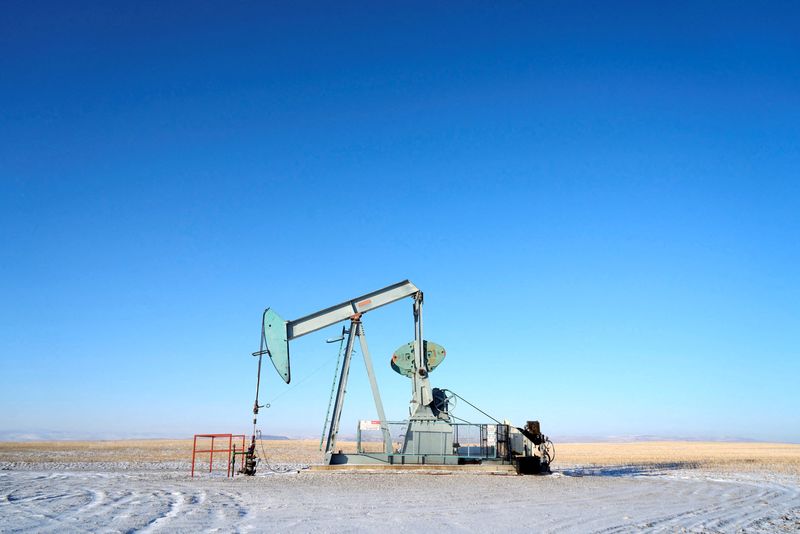Canadian oil and gas CEOs take cautious approach during price rout


By Amanda Stephenson
TORONTO (Reuters) -CEOs of Canadian oil and gas producers said on Tuesday they are seeking to avoid making abrupt decisions about spending or production, as global oil prices hit four-year lows and recession fears grow.
Canada, the world’s No. 4 oil exporter, was spared the Trump administration’s broad global tariffs on April 2 but faces U.S. tariffs on steel and cars.
“My suspicion is that most companies will work to invest through this cycle, though I would also say that in price downturns, this industry does a really good job of shedding costs,” said Jon McKenzie, CEO of oil sands producer Cenovus Energy, in an interview in Toronto. “We’ll probably see some cost reductions throughout the industry.”
Doug Bartole, CEO of InPlay Oil, said his company does not foresee reducing production or capital spending in the short term.
“Don’t make any rash decisions. Let’s take a longer view of things and see where it all settles out,” Bartole said.
But he said that could change if oil continues its slide.
“I think $50 oil would change things a bit more, obviously,” Bartole said. “We can easily pull back capital. We’re a small company, we’re nimble. We make decisions quick.”
On Tuesday, ATB Capital Markets lowered its price target for InPlay shares, citing “the current WTI pricing environment.”
Brent futures and West Texas Intermediate crude futures have slumped since U.S. President Donald Trump’s April 2 announcement of broad tariffs.
Oil prices fell further on Tuesday, trading around $60 per barrel, over recession fears exacerbated by trade conflict between the United States and China.
ATB said in a research note it still expects Canadian production to grow this year, but warned sustained lower oil prices would pressure companies to limit spending and constrain output growth.
“If we do go into a recession and prices are a bit lower, then it could ultimately affect our capital plans,” said Mike Rose, CEO of Tourmaline Oil, in an interview.
Peter Tertzakian, economist and founder of think tank Studio.Energy, said Canada’s biggest oil sands companies can be profitable at lower prices, but smaller, higher-cost operators may revise their capital budgets if prices do not rebound.
“It’s a question of whether there’s enough (money) to grow, and if $61-$62 is sustained for the balance of the year, we’re not likely to grow very much,” Tertzakian said.
Eric Nuttall, senior portfolio manager with Ninepoint Partners, does not expect much loss of Canadian production this year.
But he added he would not be surprised to see job losses, especially in the drilling sector and among smaller producers.
“Companies are going to be proactive, they’re not going to sit around and wait,” he said. “Where there’s discretionary expenditures to be cut, you’re going to be seeing that in real time.”
Chris Carlsen, CEO of Canadian natural gas producer Birchcliff Energy, said the slide in oil prices could benefit natural gas producers in the long term if it leads to an overall reduction in North American drilling.
“When they’re drilling less oil, there’s less associated gas with that, which means we could be short on the natural gas production side,” Carlsen said.
(Reporting by Amanda Stephenson; Editing by Rod Nickel)








